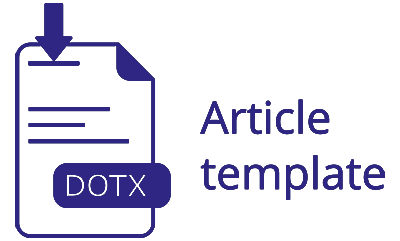Penguatan Whistleblowing System di Indonesia (Studi Kasus Whistleblowing System di Badan Pemeriksa Keuangan Republik Indonesia (BPK RI))
Abstract
Whistleblowing system is one of essential elements to protect integrity and accountability of public sector organization. Audit Board of Indonesia is one of institutions which is vulnerable on illegal and unethical behaviours in carrying out their authorities because the audit results can be a source investigation if there is an illegal or unethical behaviour. This research aims to describe the enablers and inhibitors of being whistleblower and explain the strategic ways to strengthen the whistleblowing system. This research utilized interpretivism as the research approach and carried out observation and literature study as data collection method. The former auditor of the Audit Board of Indonesia wanted to be a whistleblower because of auditor’s belief that his report will be followed up, good cooperation between the Corruption Eradication Commission (KPK) and The Audit Board of Indonesia, appreciation from international agency, and economic incentive. Nevertheless, low level of legal protection cause reluctance to be whistleblower. Whistleblowing system can be strengthened by developing supportive legal framework and organizational culture on whistleblowing.
References
Bagustianto, R dan Nurkholis 2012, ‘Faktor-Faktor yang Mempengaruhi Minat Pegawai Negeri Sipil (PNS) untuk Melakukan Tindakan Whistle-Blowing (Studi Pada PNS BPK RI)’, Ekuitas: Jurnal Ekonomi dan Keuangan, Vol. 19, No. 2, pp: 276-295
Brown, A J (ed) 2008, ‘Summary’ in Whistleblowing in the Australian public sector, ANU E Press, Canberra, pp. xxii-xxxviii.
Doloksaribu, F dan Pamungkas, B 2014, ‘Analisis Implementasi Whistleblowing System Studi Kasus pada Badan Pemeriksa Keuangan Republik Indonesia’, Skripsi di Fakultas Ekonomi Universitas Indonesia, Diunduh pada 30 Mei 2019, < http://www.lib.ui.ac.id/naskahringkas/2017-03/S58381-Febriyandi%20Dolok%20Saribu>
Dusseyer, I, Mumford, S and Sullivan G, 2011, ‘Reporting corrupt practices in the public interest: innovative approaches to whistleblowing’ ch. 23 in in A Graycar and R G Smith (eds), Handbook of global research and practice in corruption Edward Elgar, Cheltenham, pp. 429-62.
Dvora Yanow, 1999, ‘Qualitative-Interpretive Methods in Policy Research,†pp. 405-415
Instruksi Presiden (Inpres) No. 7 Tahun 2015 Tentang Aksi Pencegahan dan Pemberantasan Korupsi Tahun 2015
Komisi Pemberantas Korupsi (KPK) 2007, ‘Menyalakan lilin di tengah kegelapan’, KPK, Diunduh pada 30 Mei 2019, < https://aclc.kpk.go.id/materi/berpikir-kritis-terhadap-korupsi/buku/menyalakan-lilin-di-tengah-kegelapan>
Kusoy, MC 2017, ‘Perlindungan terhadap “whistleblower†pada tindak pidana korupsi berdasarkan undang-undang nomor 31 tahun 2014 tentang perlindungan saksi dan korban’, Lex Administratum, Vol. 5, No. 9, pp. 101-108
Liputan6 2005, ‘Whistleblower itu Sudah Tereliminasi’, Liputan6, Diunduh pada 30 Mei 2019, < https://www.liputan6.com/news/read/113407/iwhistlebloweri-itu-sudah-tereliminasi>
Merdeka.com 2005, ‘Khairiansyah: Ini Konsekuensi Yang Sudah Saya Duga Sebelumnya’, Merdeka.com, diunduh 30 Mei 2019, <https://www.merdeka.com/peristiwa/khairiansyah-ini-konsekuensi-yang-sudah-saya-duga-sebelumnya-kauwt3n.html>
Moss, P 2016, Review of the Public Interest Disclosure Act 2013, Department of the Prime Minister and Cabinet.
News.detik.com 2005, ‘BRR Nonaktifkan Khairiansyah’, News Detik.com, Diunduh 30 Mei 2019, <https://news.detik.com/berita/484474/brr-nonaktifkan-khairiansyah>
News.detik.com 2005, ‘Jika Khairiansyah Salman Dipecat, KPK Siap Menampung’, News Detik.com, Diunduh 30 Mei 2019, < https://news.detik.com/berita/343818/jika-khairiansyah-salman-dipecat-kpk-siap-menampung>
News.detik.com 2005, ‘Khairiansyah: Saya dan Keluarga Sudah Terbiasa Berjihad’, News Detik.com, Diunduh 30 Mei 2019, <https://news.detik.com/berita/d-341592/khairiansyah-saya-dan-keluarga-sudah-terbiasa-berjihad>
Nurhidayat, I & Kusumasari, B 2018, ‘Strengthening the effectiveness of whistleblowing system: A study for the implementation of anti-corruption policy in Indonesia’, Journal of Financial Crime, Vol. 25 No. 1, pp. 140-154
OECD 2011, G20 Anti-corruption action plan. Protection of whistleblowers, OECD, Paris, pp. 15-25.
Peraturan Pemerintah Republik Indonesia Nomor 71 Tahun 2000 Tentang Tata Cara Pelaksanaan Peran serta Masyarakat dan Pemberian Penghargaan dalam Pencegahan dan Pemberantasan Tindak Pidana Korupsi
Sugiyono 2014, ‘Metode Penelitian Kombinasi (Mixed Methods), Bandung: Alfabeta
Syukur, YS 2015, ‘Developing ethical behaviours at bpk through human resource management practices’, Jurnal Tata Kelola & Akuntabilitas Keuangan Negara, Vol. 1, No.2, pp. 157 – 172.
Taylor, J 2018, 'Internal whistle-blowing in the public service: a matter of trust', Public Administration Review vol. 778, no. 5, pp. 717-26.
Tempo.co 2005, ‘Khairiansyah Dilarang ke Luar Negeri’, nasional.tempo.co, Diunduh 30 Mei 2019, < https://nasional.tempo.co/read/69553/khairiansyah-dilarang-ke-luar-negeri>
The Audit Board (BPK RI) 2019, ‘WBS BPK RI’, BPK RI, diunduh 30 Mei 2019,
Transparency International (TI ) 2005, ‘Corruption perceptions index 2005’, Transparency International, diunduh 30 Mei 2019, <https://www.transparency.org/research/cpi/cpi_2005/0>
Undang-undang Republik Indonesia Nomor 15 Tahun 2006 Tentang Badan Pemeriksa Keuangan
Undang-undang republik indonesia nomor 31 tahun 2014 tentang perubahan atas undang-undang nomor 13 tahun 2006 tentang perlindungan saksi dan korban
Widayati, LS 2012, Peran Whistleblower dalam Pengungkapan Kasus Suap Pegawai Pajak, DPR RI, diunduh 30 Mei 2019, <http://berkas.dpr.go.id/puslit/files/info_singkat/Info%20Singkat-IV-14-II-P3DI-Juli-2012-23.pdf>
Copyright (c) 2021 Public Inspiration: Jurnal Administrasi Publik

This work is licensed under a Creative Commons Attribution-ShareAlike 4.0 International License.
This journal provides immediate open access to its content on the principle that making research freely available to the public supports a greater global exchange of knowledge.
All articles published Open Access will be immediately and permanently free for everyone to read and download. We are continuously working with our author communities to select the best choice of license options, currently being defined for this journal as follows: Creative Commons Attribution-ShareAlike (CC BY-SA)
 Abstract viewed = 895 times
Abstract viewed = 895 times
 PDF (Bahasa Indonesia) downloaded = 4149 times
PDF (Bahasa Indonesia) downloaded = 4149 times







